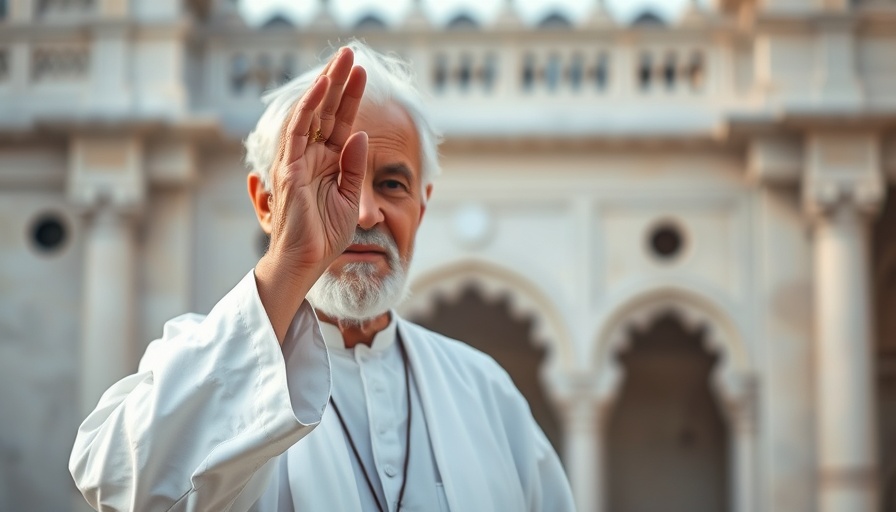
The Vatican's Evolving Response to Abuse Victims
The recent statements from victims of the Sodalicio scandal reveal a significant shift within the Catholic Church, particularly under Pope León XIV’s papacy. Victims like José Rey de Castro have candidly shared their experiences of abuse and described how the Pope's engagement gave them a sense of hope in an institution often criticized for its silence on such matters. These testimonies not only shed light on their pain but also highlight the Church's efforts to foster a more transparent and supportive environment.
Why Victims Felt Heard for the First Time
When discussing the Vatican's previous administration, many victims expressed feeling dismissed. However, León XIV's personal outreach marks a departure from that narrative. Rey de Castro stated, "Me escuchó," translating to, "He listened to me," emphasizing the crucial step that acknowledgment plays in healing processes. This direct engagement from a high-ranking official offers victims an unprecedented chance to reclaim their voices and experiences, a theme resonating across the globe as more institutions face pressure to take accountability.
Broader Implications for the Catholic Church
The shift in the Vatican’s approach sparks hope for future victims. It indicates a willingness to confront the past rather than obfuscate it. As similar scandals unfold globally, León XIV's dedication to listening might pave the way for a new era of transparency and accountability in the Church. This trend reflects a growing understanding that addressing past wrongs is not just a moral obligation but also a business necessity, as the Church strives to maintain its relevance and credibility among believers.
Social Media's Role in Amplifying Victims' Voices
In today's digital age, the power of social media cannot be understated. Platforms like Twitter and Facebook have become critical spaces for highlighting injustices and garnering support. Victims sharing their stories—like those of abuse from the Sodalicio—have found a vast audience online, prompting conversations that challenge the status quo. As trending news on social media continues to advocate for victims, more organizations must recognize the crucial role that public discourse plays in effecting change.
Understanding the Cultural Context
Understanding the sociocultural backdrop against which these events unfold is essential. The Sodalicio scandal isn't just a Catholic issue; it reflects broader societal struggles with power dynamics, accountability, and the imperative for support systems. This situation invites comparisons to survivors of abuse in secular environments, further uniting voices demanding justice across different spheres and highlighting the interconnectedness of societal challenges.
What This Means for the Global Community
León XIV's actions resonate beyond the Catholic community—raising the bar for institutions worldwide on how to address sexual abuse allegations. It serves as a reminder that institutional silence can no longer be tolerated, and victims deserve not only to be heard but also to be taken seriously. As this situation unfolds, it will likely serve as a case study for international bodies grappling with their own histories of abuse.
A Path Forward for Change and Accountability
Looking ahead, the question remains: how can institutions foster a culture of accountability and support for victims? For the Catholic Church, this journey is just beginning. The innovative approaches demonstrated by León XIV could pave the way for meaningful reforms within the Church that emphasize transparency, compassion, and justice.
In conclusion, as society continues to grapple with the demands for accountability and healing, the importance of communication with victims cannot be overstated. While the change brought on by León XIV's engagement is significant, it's crucial for both the Church and wider community to maintain momentum in addressing past abuses and ensuring systemic failures are fixed.
 Add Row
Add Row  Add
Add 




 Add Row
Add Row  Add
Add 

Write A Comment